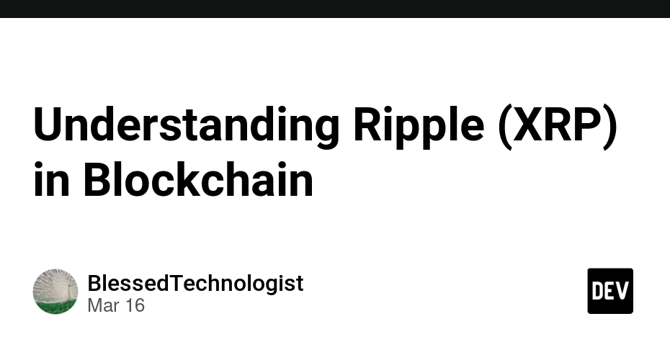Dev
1M
165

Image Credit: Dev
Understanding Ripple (XRP) in Blockchain
- Ripple (XRP) is a unique player in the digital currency and blockchain space, focusing on revolutionizing cross-border payments for financial institutions.
- Ripple, founded in 2012, operates on a decentralized blockchain and prioritizes serving banks and financial entities.
- The Ripple Protocol utilizes a consensus algorithm for transaction validation, enabling faster and efficient processing.
- XRP token acts as a bridge currency, facilitates low-cost cross-border transactions, and is used for transaction fees and liquidity provision.
- Ripple's transaction process involves steps like creation, validation, consensus, ledger update, and settlement, ensuring rapid fund transfers.
- RippleNet connects financial institutions for cross-border payments, offering features like On-Demand Liquidity and real-time payment tracking.
- Ripple's consensus algorithm, employing validators and Unique Node Lists, enhances transaction speed, energy efficiency, and decentralization with trust.
- The advantages of Ripple include speed, cost-effectiveness, scalability, security, expansion into emerging markets, innovation, partnerships, and community engagement.
- Use cases of Ripple span cross-border payments, remittances, financial institutions, tokenization, smart contracts, and potential integration with Central Bank Digital Currencies.
- Ripple's commitment to innovation and partnerships positions it for future growth, reshaping global finance with efficient payment solutions.
Read Full Article
9 Likes
For uninterrupted reading, download the app